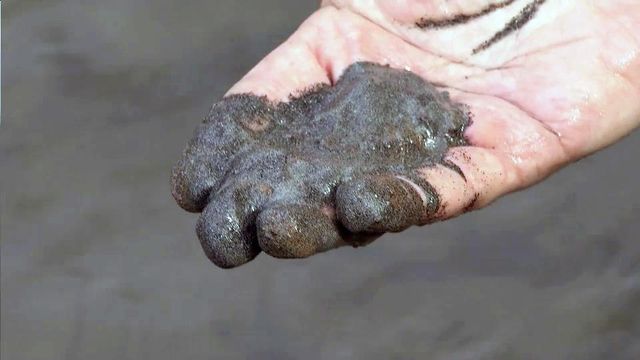Lawmakers approve easing coal ash law
State lawmakers gave final approval Thursday to a proposal to step back from requiring Duke Energy to excavate the state's 33 coal ash ponds.
Posted — UpdatedThe measure, House Bill 630, was unveiled and passed in the Senate Tuesday, heard in a House committee Wednesday and sent to the governor Thursday evening on a bipartisan House vote of 82-32.
Under the legislation, Duke would be required to excavate coal ash ponds at seven sites. The other seven sites could be capped in place as long as Duke provides permanent alternative water sources to households within a half-mile of the ponds – or beyond that radius if testing shows the contamination plume has moved – and shores up the dams that keep the ash contained.
The water sources would have to be in place by Oct. 15, 2018.
Earlier this year, the Department of Environmental Quality rated all 14 sites in the state as either intermediate or high risk, which under the state's 2014 Coal Ash Management Act would require them to be excavated. Duke has protested that the cost would be prohibitive and would likely be passed on to ratepayers.
Supporters of the new measure say it's a compromise that will protect public health while also avoiding unnecessary cost.
Rep. Dana Bumgardner, R-Gaston, who has a coal ash site in his district, said he's gotten "quite a large number" of calls and emails about it.
"Before anything else happens, the people that live there who have water contaminated need to have that issue resolved. This bill resolves that sooner rather than later," Bumgardner urged the House. "Let’s do first things first and get water for the people who need to have water. We’re going to revisit this issue in the future."
Rep. Rick Catlin, R-New Hanover, argued that the clean-up deadlines set by the 2014 law were unworkably aggressive and should be slowed down to protect public safety.
Catlin said the state's 14 sites contain 110 million tons of coal ash, or about 2.2 million truckloads, leaving sites "every three minutes, 24 hours a day, seven days a week."
"Forty percent of our bridges in North Carolina are not strong enough for those coal ash weights," Catlin said. "We would have many people get killed. We’ll have bridges fail. We'll have coal ash spills. We’ll have road fails. We’ll have rail fails."
Rep. Pricey Harrison, D-Guilford, disagreed, arguing that state lawmakers shouldn't allow unlined pits at seven sites to be capped in place with no further clean-up.
"The toxins and contaminants continue to leach from those coal ash ponds into ground and surface water," including rivers that supply municipal water systems, Harrison argued. "These are known carcinogens and known neurotoxicants."
She also said Duke had overestimated its clean-up costs to persuade lawmakers to lessen the 2014 requirements and that utility rates would not have to be raised in order for Duke to pay for the clean-up.
"There are many of us that feel it's the Duke shareholders, not the ratepayers, that should be paying that cost," she said. "Even if cost were a factor, at what point do we sacrifice public health for cost? I just don’t think that’s a fair trade."
Rep. Chuck McGrady, R-Henderson, was reluctant to speak against the bill, pointing to its requirements for permanent water sources and beneficial use projects as strengths. However, he noted that the seven sites it would require to be excavated are already required to be excavated under legal settlements, "so that’s not a positive. That’s a reflection of reality."
"The other seven are all the largest sites in the state, and that just gives me pause," McGrady added.
Rep. Larry Yarborough, R-Person, who also has a plant in his district, urged support for the measure. He said lawmakers will likely have to adjust the state's coal ash regulations on a regular basis as new problems are found and new technologies are developed.
"Coal ash as an issue is just a baby. We’re going to be raising this baby for a while," Yarborough said. "It’s going to take decades to clean this all up."
Related Topics
• Credits
Copyright 2024 by Capitol Broadcasting Company. All rights reserved. This material may not be published, broadcast, rewritten or redistributed.





